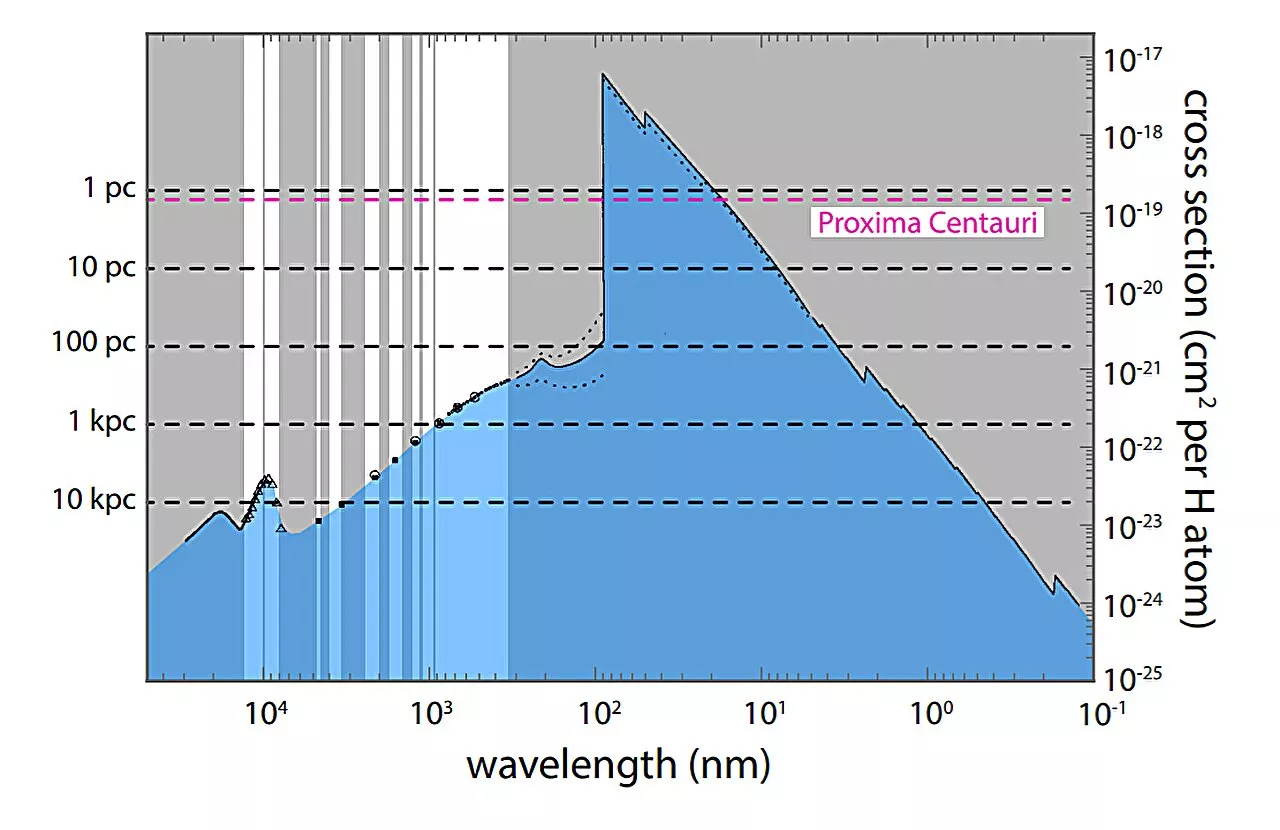We explore various proposed resolutions, including the possibility that intelligent life is only listening to the cosmos, and not messaging.
, we looked at some of the proposed resolutions to the Fermi Paradox made in the past few decades. These included the possibility that humanity is alone in the Universe, that intelligent life is periodically wiped out , and that it may be avoiding contact with humanity. Today, we will examine other proposed resolutions and what makes them appear likely .
Researchers from the Harvard-Smithsonian Center for Astrophysics explored this possibility in a 2016 study, arguing that the probability of life in our Universe grows over time. However, low-mass stars can remain in their main sequence for up to trillions of years. Based on their analysis, they concluded that the probability of life on planets orbiting red dwarf stars increases exponentially over this amount of time.The study is consistent with what we know about the emergence of life on Earth and the long-lived nature of M-type stars. It also challenges one of the biggest assumptions about life in the Universe by rejecting the idea that life emerged long ago.
This is the essence of the “Percolation Hypothesis,” which argues that civilizations that attempt interstellar exploration and settlement will not expand uniformly or exponentially. Instead, they will “percolate” outwards, settling in some areas while failing to do so in others. This process will leave much of the galaxy unsettled.
However, these speculations are still useful. Theoretical predictions about what advanced ETI will look like – which is to say, what technosignatures they will produce – allow scientists to constrain and widen their searches. And while any proposed resolution to the Fermi Paradox is subject to bias, some are arguably more realistic.
Another common argument is that humanity is not searching for the right biosignatures, technosignatures, or in the right places. As David Brin told Interesting Engineering, the search has evolved considerably since“The Drake Equation was always intended to lay on the table various topics for discussion or research. Frank never meant it as a predictive scientific formulation. For 25 years, we’ve confirmed that planets are abundant.
South Africa Latest News, South Africa Headlines
Similar News:You can also read news stories similar to this one that we have collected from other news sources.
 Could interstellar quantum communications involve Earth or solve the Fermi paradox?Thus far, the search for extraterrestrial intelligence (SETI) has used strategies based on classical science—listening for radio waves, telescopes watching for optical signals, telescopes in orbit scouring light from the atmospheres of exoplanets, scanning for laser light that might come from aliens.
Could interstellar quantum communications involve Earth or solve the Fermi paradox?Thus far, the search for extraterrestrial intelligence (SETI) has used strategies based on classical science—listening for radio waves, telescopes watching for optical signals, telescopes in orbit scouring light from the atmospheres of exoplanets, scanning for laser light that might come from aliens.
Read more »
 The Fermi Paradox: Which proposed resolution is the most likely?The Fermi Paradox asks the question: If life is common in the Universe, why has humanity yet to find any evidence of it?
The Fermi Paradox: Which proposed resolution is the most likely?The Fermi Paradox asks the question: If life is common in the Universe, why has humanity yet to find any evidence of it?
Read more »
 1 BTS Deadpool & Wolverine Reveal Changes How You Look At Its Villain In The Best WayCassandra Nova and Mr. Paradox in Deadpool & Wolverine
1 BTS Deadpool & Wolverine Reveal Changes How You Look At Its Villain In The Best WayCassandra Nova and Mr. Paradox in Deadpool & Wolverine
Read more »
 Pokémon TCG Value Watch: Paradox Rift in September 2024The Pokémon TCG is an ever-changing and unpredictable market. Over the past two years, we've seen renewed interest in the hobby due to a number of factors, including the 25th Anniversary, strong Sword & Shield-era sets featuring stunning Alternate Arts, influencers, box breaks, COVID-19 lockdown pushing people to find hobbies and more.
Pokémon TCG Value Watch: Paradox Rift in September 2024The Pokémon TCG is an ever-changing and unpredictable market. Over the past two years, we've seen renewed interest in the hobby due to a number of factors, including the 25th Anniversary, strong Sword & Shield-era sets featuring stunning Alternate Arts, influencers, box breaks, COVID-19 lockdown pushing people to find hobbies and more.
Read more »
 The great paradox in retail: Great prices but bad-for-the-planet fast fashionNew clothes are fun, especially when the price is right. But how long can we support fast fashion with its bad-for-environment, bad-for-workers infrastructure?
The great paradox in retail: Great prices but bad-for-the-planet fast fashionNew clothes are fun, especially when the price is right. But how long can we support fast fashion with its bad-for-environment, bad-for-workers infrastructure?
Read more »
 Questioning The Paradox Of Physical Punishment: It's Legal In Schools, Criminal Outside Them.This article explores the controversial topic of physical punishment, highlighting the paradox of its legality in schools while being considered criminal outside of them. It delves into the impact of early childhood experiences on prejudice and violence, emphasizing the need to understand how feelings work and the factors contributing to aggression. The author argues that physical punishment is a signal to take early development seriously and calls for alternative methods that foster children's development effectively.
Questioning The Paradox Of Physical Punishment: It's Legal In Schools, Criminal Outside Them.This article explores the controversial topic of physical punishment, highlighting the paradox of its legality in schools while being considered criminal outside of them. It delves into the impact of early childhood experiences on prejudice and violence, emphasizing the need to understand how feelings work and the factors contributing to aggression. The author argues that physical punishment is a signal to take early development seriously and calls for alternative methods that foster children's development effectively.
Read more »
